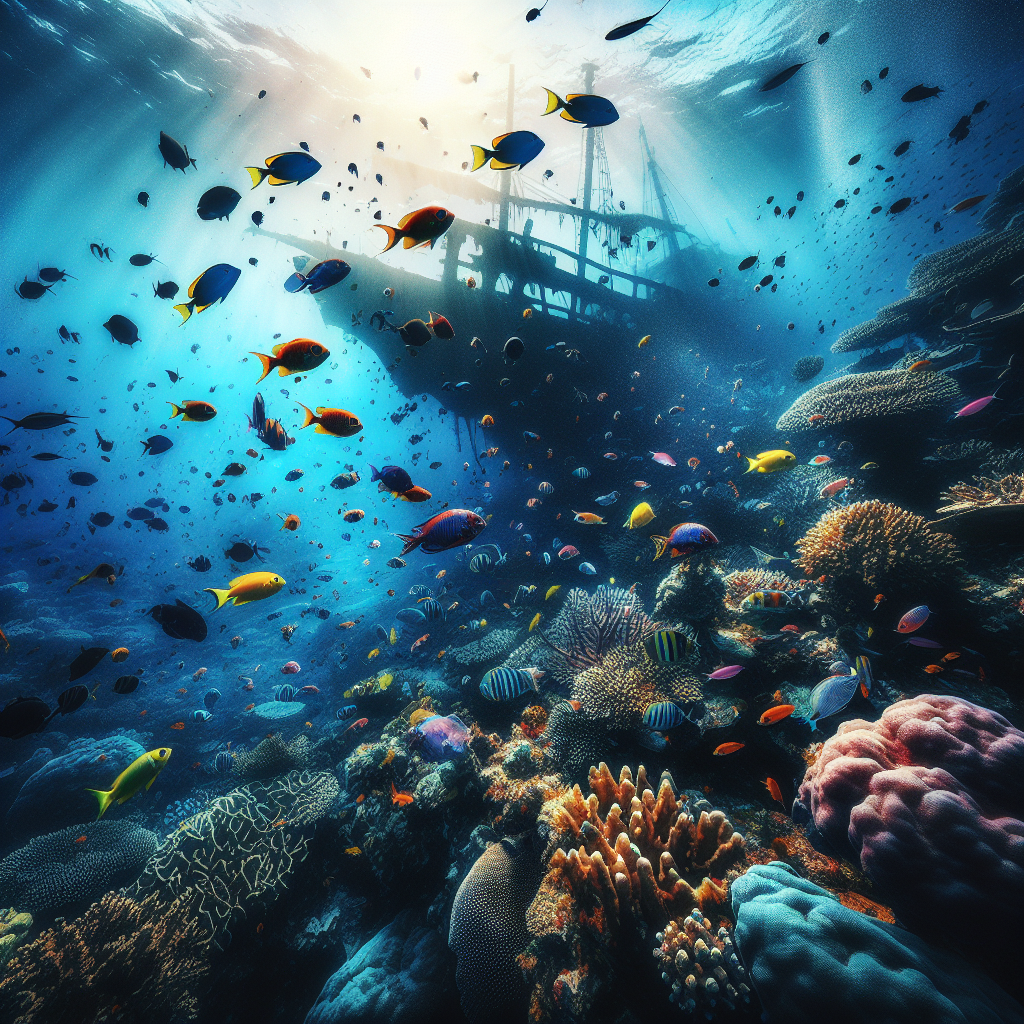Diving Into the Depths of the underwater:3u1qizs_9ra= ocean
Introduction
The underwater world is a vast, mysterious place that has fascinated humans for centuries. From the vibrant coral reefs to the eerie deep-sea trenches, there’s so much to explore and learn about this hidden realm. For marine enthusiasts, environmental advocates, and travel bloggers, understanding the underwater world is not just a passion but a necessity. This blog post aims to unravel the wonders of the underwater:3u1qizs_9ra= ocean, providing insights into its beauty, significance, and the challenges it faces. Whether you’re a seasoned diver or a curious reader, you’ll find valuable information and inspiration in the sections that follow.
The Allure of Coral Reefs
Coral reefs are often referred to as the rainforests of the sea, and for a good reason. These underwater ecosystems are teeming with life, offering shelter to a diverse range of marine species. The underwater:3u1qizs_9ra= ocean is home to some of the most breathtaking coral reefs on the planet. These reefs not only provide a habitat for marine life but also play a crucial role in protecting coastlines from erosion and storm surges.
For marine enthusiasts, exploring coral reefs is like stepping into another world. The vibrant colors, intricate structures, and the sheer diversity of life forms make it a mesmerizing experience. However, coral reefs are under threat from various factors, including climate change, overfishing, and pollution. Environmental advocates are working tirelessly to protect these fragile ecosystems and ensure their survival for future generations.
Travel bloggers often highlight destinations with stunning coral reefs, attracting tourists who wish to witness these natural wonders firsthand. By raising awareness about the importance of coral reefs, bloggers can contribute to conservation efforts while providing readers with valuable travel tips.
The Wonders of Deep-Sea Trenches
Deep-sea trenches are some of the most mysterious and least explored areas of the underwater:3u1qizs_9ra= ocean. These trenches, which can be several miles deep, are home to unique and often bizarre creatures that have adapted to extreme conditions. The pressure, darkness, and cold temperatures make these environments challenging to study, but they also offer a glimpse into the resilience of life.
For marine enthusiasts, the deep-sea trenches represent the final frontier of ocean exploration. The discovery of new species and the study of these unique ecosystems can provide valuable insights into the adaptability of life on Earth. However, deep-sea mining and other human activities pose significant threats to these fragile environments.
Environmental advocates are calling for stricter regulations to protect deep-sea trenches from exploitation. By highlighting the importance of these ecosystems, they hope to raise awareness and drive policy changes. Travel bloggers can also play a role by sharing stories and images of deep-sea exploration, inspiring their readers to appreciate and protect the underwater world.
The Importance of Marine Biodiversity
Marine biodiversity is crucial for the health and stability of the underwater:3u1qizs_9ra= ocean. A diverse range of species ensures that ecosystems are resilient and can recover from disturbances. The loss of biodiversity can have cascading effects, impacting everything from food security to climate regulation.
For marine enthusiasts, studying marine biodiversity is a way to understand the complex interactions within ecosystems. From the tiniest plankton to the largest whales, each species plays a vital role in maintaining the balance of the underwater world. Understanding these relationships can help scientists develop strategies for conservation and management.
Environmental advocates emphasize the importance of protecting marine biodiversity to ensure the health of the planet. They work on various initiatives, from creating marine protected areas to promoting sustainable fishing practices. Travel bloggers can support these efforts by sharing stories of marine life and highlighting the need for conservation.
The Role of Oceans in Climate Regulation
The underwater:3u1qizs_9ra= ocean plays a critical role in regulating the Earth’s climate. Oceans absorb a significant amount of carbon dioxide and heat, helping to mitigate the impacts of climate change. However, rising temperatures and increased carbon emissions are putting immense pressure on these natural systems.
For marine enthusiasts, understanding the ocean’s role in climate regulation is essential for appreciating its importance. Studying ocean currents, temperature changes, and the impact of human activities can provide valuable insights into the broader climate system. This knowledge can inform efforts to mitigate climate change and protect marine ecosystems.
Environmental advocates are pushing for stronger climate policies to reduce carbon emissions and protect the ocean. By raising awareness about the ocean’s role in climate regulation, they hope to inspire action at both individual and policy levels. Travel bloggers can contribute by sharing stories of how climate change is affecting marine environments and the communities that depend on them.
The Fascinating World of Marine Mammals
Marine mammals, such as whales, dolphins, and seals, are some of the most charismatic inhabitants of the underwater:3u1qizs_9ra= ocean. These animals captivate our imagination with their intelligence, social behaviors, and incredible adaptations to life in the water. Studying marine mammals can provide valuable insights into the health of marine ecosystems and the impact of human activities.
For marine enthusiasts, observing marine mammals in their natural habitats is a thrilling experience. Whether it’s witnessing a pod of dolphins playing in the surf or hearing the haunting calls of a humpback whale, these encounters create lasting memories. However, marine mammals face numerous threats, including habitat loss, pollution, and entanglement in fishing gear.
Environmental advocates are working to protect marine mammals through various initiatives, such as establishing marine protected areas and promoting sustainable fishing practices. By raising awareness about the importance of these animals, they hope to inspire greater conservation efforts. Travel bloggers can support these efforts by sharing stories and images of marine mammals, encouraging their readers to appreciate and protect these incredible creatures.
The Impact of Plastic Pollution on Oceans
Plastic pollution is one of the most pressing environmental issues affecting the underwater:3u1qizs_9ra= ocean. Every year, millions of tons of plastic waste enter the ocean, harming marine life and ecosystems. From tiny microplastics to large debris, plastic pollution poses a significant threat to the health of the ocean.
For marine enthusiasts, understanding the impact of plastic pollution is essential for appreciating the challenges facing the underwater world. Studying the sources, distribution, and effects of plastic pollution can provide valuable insights into how to address this issue. Researchers are developing innovative solutions to reduce plastic waste and mitigate its impact on marine ecosystems.
Environmental advocates are raising awareness about the dangers of plastic pollution and promoting sustainable alternatives. By highlighting the impact of plastic waste on the ocean, they hope to inspire individuals and policymakers to take action. Travel bloggers can contribute by sharing stories of how plastic pollution affects marine environments and the communities that depend on them.

The Role of Mangroves in Coastal Protection
Mangroves are unique coastal ecosystems that play a crucial role in protecting the underwater:3u1qizs_9ra= ocean. These trees and shrubs thrive in saltwater environments, providing habitat for a diverse range of marine species. Mangroves also act as natural barriers, protecting coastlines from erosion and storm surges.
For marine enthusiasts, exploring mangrove ecosystems offers a chance to witness the incredible diversity of life that thrives in these environments. From colorful fish to exotic birds, mangroves are teeming with life. Studying these ecosystems can provide valuable insights into the complex interactions within coastal environments.
Environmental advocates emphasize the importance of protecting mangroves to ensure the health of coastal ecosystems. They work on various initiatives, from reforestation projects to promoting sustainable land use practices. Travel bloggers can support these efforts by sharing stories and images of mangrove ecosystems, highlighting their importance for the underwater world and coastal communities.
The Challenges of Overfishing
Overfishing is a significant threat to the health of the underwater:3u1qizs_9ra= ocean. Unsustainable fishing practices deplete fish populations, disrupt ecosystems, and threaten the livelihoods of communities that depend on fishing. Addressing overfishing requires a coordinated effort from governments, industry, and consumers.
For marine enthusiasts, understanding the impact of overfishing is essential for appreciating the challenges facing the underwater world. Studying fish populations, fishing practices, and the impact of human activities can provide valuable insights into how to address this issue. Researchers are developing sustainable fishing practices and management strategies to protect marine ecosystems.
Environmental advocates are raising awareness about the dangers of overfishing and promoting sustainable seafood choices. By highlighting the impact of overfishing on the ocean, they hope to inspire individuals and policymakers to take action. Travel bloggers can contribute by sharing stories of how overfishing affects marine environments and the communities that depend on them.
The Wonders of Marine Archaeology
Marine archaeology offers a fascinating glimpse into the history of the underwater:3u1qizs_9ra= ocean. From shipwrecks to submerged cities, the ocean is filled with remnants of past civilizations. Exploring these underwater sites can provide valuable insights into human history and the evolution of maritime cultures.
For marine enthusiasts, studying marine archaeology is a way to connect with the past and understand the impact of human activities on the ocean. Discovering ancient artifacts and studying submerged structures can reveal new information about historical events and trade routes. Marine archaeology also highlights the importance of preserving underwater cultural heritage.
Environmental advocates emphasize the need to protect underwater archaeological sites from looting and damage. By raising awareness about the significance of these sites, they hope to inspire conservation efforts. Travel bloggers can support these efforts by sharing stories and images of marine archaeology, encouraging their readers to appreciate and protect underwater cultural heritage.
The Future of Ocean Exploration
The underwater:3u1qizs_9ra= ocean remains largely unexplored, with vast areas yet to be discovered and studied. Advances in technology, such as remotely operated vehicles (ROVs) and autonomous underwater vehicles (AUVs), are opening up new possibilities for ocean exploration. These innovations are providing scientists with valuable tools to study the ocean’s depths.
For marine enthusiasts, the future of ocean exploration holds the promise of new discoveries and insights. From uncovering hidden ecosystems to studying the impact of climate change, there is still much to learn about the underwater world. Understanding these advancements can provide valuable perspectives on the potential for future research and conservation efforts.
Environmental advocates are calling for increased funding and support for ocean exploration. By highlighting the importance of understanding the underwater world, they hope to inspire greater investment in research and technology. Travel bloggers can contribute by sharing stories of ocean exploration, inspiring their readers to appreciate and protect the underwater world.

The Importance of Marine Education
Marine education is essential for fostering a deeper understanding of the underwater:3u1qizs_9ra= ocean. By learning about marine ecosystems, conservation, and sustainable practices, individuals can make informed decisions that benefit the ocean. Education also plays a crucial role in inspiring the next generation of marine scientists and advocates.
For marine enthusiasts, engaging in marine education can enhance their appreciation of the underwater world. From attending workshops to participating in citizen science projects, there are many ways to learn about the ocean. Understanding the importance of marine education can also encourage individuals to share their knowledge with others.
Environmental advocates emphasize the need for comprehensive marine education programs that reach diverse audiences. By raising awareness about the importance of marine education, they hope to inspire individuals and institutions to invest in learning opportunities. Travel bloggers can support these efforts by sharing educational resources and highlighting the importance of marine education.
Conclusion
The underwater world is a treasure trove of wonders, waiting to be explored and appreciated. From the vibrant coral reefs to the mysterious deep-sea trenches, there is so much to discover in the underwater:3u1qizs_9ra= ocean. By understanding the importance of marine biodiversity, climate regulation, and conservation, we can work together to protect this precious resource.
For marine enthusiasts, environmental advocates, and travel bloggers, the underwater world offers endless opportunities for exploration and inspiration. By raising awareness about the challenges facing the ocean and promoting sustainable practices, we can ensure its health and vitality for future generations.
If you’re passionate about the underwater world and want to learn more, consider joining a marine conservation organization or participating in citizen science projects. Together, we can make a difference and protect the wonders of the underwater ocean.














Post Comment